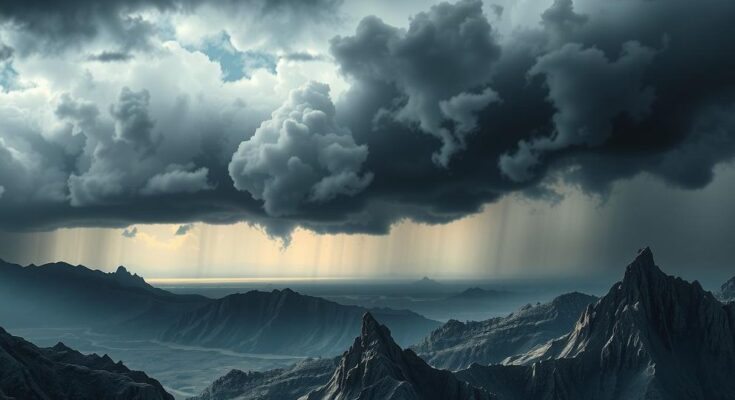The Democratic Republic of the Congo is witnessing an alarming surge of conflict, marked by the M23 rebellion backed by Rwandan forces. This escalation has drawn international attention, particularly from Western governments criticized for their role in this crisis. Recent developments, including violent protests and interventions from the UN, illustrate the urgent need for diplomatic action to avert further humanitarian crises and maintain regional stability.
A significant conflict is brewing in the Democratic Republic of the Congo (DRC), driven by the resurgence of the M23 rebel group, which is allegedly supported by Rwandan military forces. This alarming escalation poses risks that extend beyond the African continent, highlighting the perceived complacency of Western governments that have been criticized for indirectly facilitating this crisis. Recent events, including the capture of Goma by M23, illustrate the dire humanitarian impact of the conflict on Congolese civilians.
Since 2021, M23 has progressively gained ground in eastern DRC, culminating in their recent seizure of territory surrounding Goma. The UN Secretary-General, António Guterres, has urged Rwanda to cease its support for M23 and withdraw its troops from Congolese soil, pointing out the severe humanitarian toll affecting millions in need of aid. In response to the escalating violence, public demonstrations in Kinshasa have seen protesters targeting Rwandan and Western embassies.
M23’s actions represent the latest chapter in a long history of Rwandan involvement in Congolese turmoil, a situation dating back nearly three decades. President Paul Kagame, once revered in the West for his leadership following the 1994 genocide, has justified Rwandan interventions as protective measures for the Tutsi population amidst ongoing ethnic tensions in the region, often leading to accusations of resource exploitation.
The cycle of conflict has enabled Rwanda to extract significant mineral wealth from eastern DRC. Although there have been attempts at reconciliation following the national peace deal in 2002, subsequent rebellions from 2004 and 2008 saw Tutsi-affiliated armed groups challenge the Congolese state for greater power and resources. Established in 2012, M23 briefly occupied Goma before suffering a setback the following year.
Western nations have a complicated history in addressing Rwanda’s role in the DRC. Diplomatic efforts often downplayed the evidence of Rwandan support for the M23 and other insurgencies. After overwhelming evidence emerged in 2012, temporary aid suspensions were put in place by some Western governments, although a substantial portion of Rwanda’s budget continues to rely on donor support.
The DRC has endured decades of conflict, often fueled by the interplay of ethnic strife and resource wealth. The M23, a group formed from previous insurgencies, represents not only a continuation of instability in the region but also a complex web of political and military alliances. The involvement of Rwanda under President Kagame has transformed the conflict into a broader issue affecting regional security and international relations, particularly given Rwanda’s strategic alliances with Western nations and more recent ties to actors like Turkey and Qatar. The fears of igniting another wide-scale war reflect a growing concern over regional stability and the possibility of external interventions similar to past conflicts. The Western response to these developments will be pivotal in determining whether the DRC can avoid further descent into chaos and protect its sovereignty against unwanted foreign influence, including that potentially afforded by states seeking to expand their geopolitical footprint.
In summary, the looming conflict in the DRC underscores the complex interplay of regional politics, resource exploitation, and humanitarian crises. The M23 rebellion, fueled by Rwandan support, poses significant risks that may destabilize the region further. It is imperative for Western nations to leverage their influence to encourage a de-escalation of tensions and reliable negotiations to address the underlying issues of power and governance, to prevent a repeat of historical conflicts that could spiral out of control.
Original Source: www.theguardian.com




